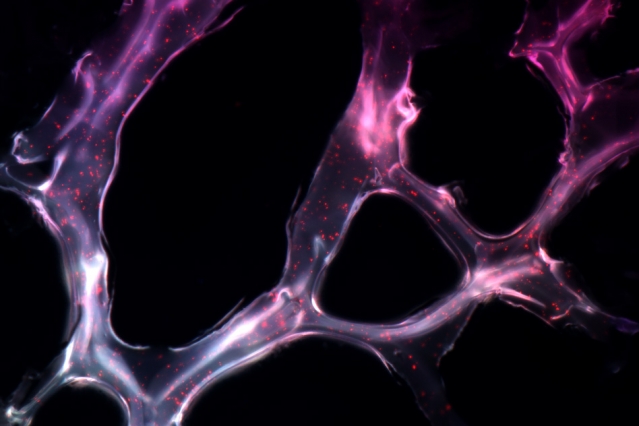The study published on Wednesday in the journal Science Translational Medicine described the Velcro-like protein that can prevent cytokines from escaping once they have been injected into the tumor.
Cytokines, small proteins released by immune cells to communicate with each other, have revealed potency to treat cancer in combination with other immunotherapies, but they are highly toxic to both healthy tissue and tumors, according to the study.
Oncologists previously attempted to inject cytokines directly into the tumor, but the proteins leaked out of the cancerous tissue within minutes, making the cytokines' clinical use almost impossible.
The researchers in this study first investigated different proteins found in tumors, and identified collagen, which is abundant in solid tumors, as a target for the cytokine treatment. Then, they attached a collagen-binding protein called lumican to the cytokines.
They tested the treatment by injecting two cytokines into a type of melanoma containing relatively low amounts of collagen in mice. When the cytokine treatment was administered individually, the mice all died; when it was combined with some immunotherapies, the survival rates improved slightly, but when the cytokine was administered with the collagen-binding lumican, more than 90 percent of the mice survived, according to the study.
They work really well together and cytokines attached to lumican really helped reap the full benefits of the combination, said the paper's lead author Noor Momin, a graduate student at MIT.
















































